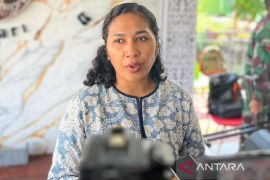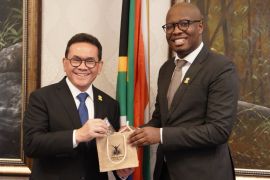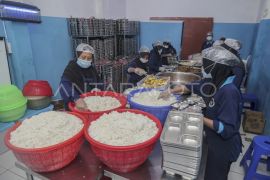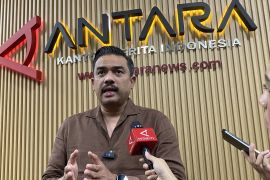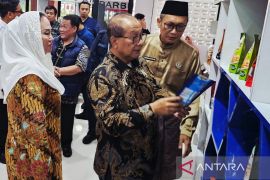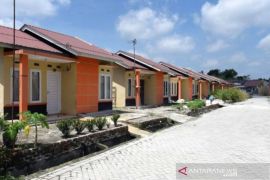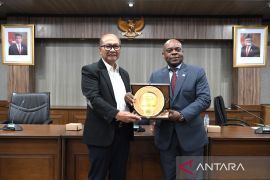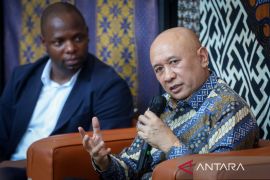The first foundation was enabling easy access to financing for micro, small, and medium enterprises (MSMEs), the minister said.
"So far, the main problem is financing, especially for micro-enterprises that are unbankable or in the informal sector," Masduki noted at the '2021 Reflecting and 2022 Outlook' press conference on Thursday.
In the micro sector, productive grants to the tune of Rp15.36 trillion were awarded to 12.8 million business actors, he informed.
Data from November 2021 showed that the absorption of state-owned financing company PNM Mekaar grew by 96.3 percent year-on-year to Rp 42.1 trillion and PNM Ulamm by 29.3 percent to Rp2.79 trillion, he noted.
These figures indicate that access to finance for micro-enterprises or the informal sector is improving, Masduki said.
MSMEs were also given an additional 3 percent People's Business Credit (KUR) interest subsidy, which was distributed to 7.5 million debtors with total funding of Rp278.38 trillion, or 97.8 percent of the target of Rp285 trillion as of December 30, 2021, the minister informed.
"We also provided funding facilities to cooperative actors with a sliding of 3 percent light interest, with a realization of Rp1.64 trillion or 102.6 percent of the target of Rp 1.6 trillion," he said.
Related news: Digital transformation helping MSMEs navigate COVID crisis
The second foundation involved market expansion and digitalization, he informed. A total of 16.9 million MSMEs came on board for this push as of November 2021, or an increase of more than 100 percent since the COVID-19 pandemic began, he said.
The third foundation involved encouraging MSMEs partnerships with big businesses, he said. The program started in 2021 with nine state-owned enterprises (SOEs) along with a number of private companies, such as PT Mitra Bumdes Nusantara, Micro Consulting, Uniqlo, IKEA, Tokopedia, MNC Group, INA Product, BNI, Grab, and Gojek, he added.
The next foundation involved making MSME data collection a basis for policymaking, while the fifth foundation involved bureaucratic reform within the ministry by simplifying the institutional make-up and reducing the number of deputies from six to four, the minister said.
In addition, several changes were made in Smesco's focus, which is now trying to develop MSMEs and cooperatives so they can compete globally, he added.
The minister also said that Smesco was used as a center of excellence for product development and a competitive MSME business model.
"I think Smesco has changed its business model from the property rental business into a trading wing of the Ministry of Cooperatives to support MSMEs in reaching a wider market, both domestically and abroad," he informed.
Related news: Telkomsel to collaborate with SMESCO for MSME digitalization
Related news: VP's special staff to help promote MSMEs' products through SMESCO
Translator: M Baqir I A, Resinta S
Editor: Suharto
Copyright © ANTARA 2021

